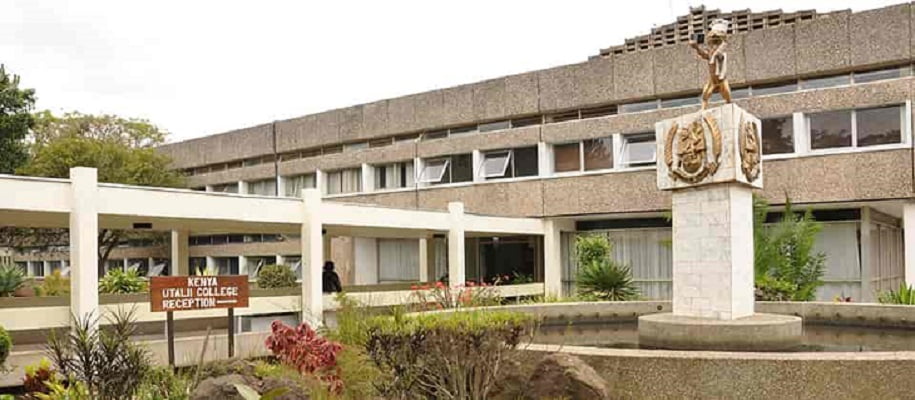After years of exposing the ruthless, privacy-invading tactics of unregulated mobile lending apps, a disturbing new trend is emerging that even established banks are now resorting to the same low-grade methods to chase down borrowers.

While the likes of Truepesa, Fairkash, Kcredit, Skypesa, InstarCash, Zuricash, Okash, Opesa, Zenka, Tala, Branch, Haraka, iPesa, PesaFlash, LionCash, Loanbee, Sokopay, Berry, Kashway, and CreditHela have built their reputations on harassment and data abuse by routinely contacting people in a borrower’s phonebook after missed payments, the assumption was always that regulated, licensed financial institutions would operate above such chaos.
That illusion is now quickly unraveling, as even established banks begin adopting the same invasive and humiliating tactics once thought to be the preserve of rogue digital lenders.
In a case that perfectly illustrates this alarming convergence between regulated financial institutions and disreputable loan apps, Absa Bank Kenya has now been linked to a third-party agency accused of deploying similarly aggressive tactics.
According to a source, an employee at NCBA Bank Kenya (which itself is no stranger to controversy and has a long track record of customer mistreatment and unresolved internal fraud) recently received an unsolicited and highly inappropriate email from a company identifying itself as Garth Africa, claiming to act on behalf of Absa.
NCBA Bank on the Spot Again as Client Loses Funds in Unauthorized Transaction
The communication, sent without prior consent, not only disclosed sensitive loan details but also copied her professional NCBA work email, recklessly dragging her employer into a private financial matter in what can only be described as a deliberate act of public shaming.
“Hi Nyakundi, Kindly keep me anonymous. I just wanted to flag a disturbing development involving Absa Bank. A friend of mine who works at NCBA recently received an unsolicited email from a firm calling itself Garth Africa, claiming to be acting on behalf of Absa in relation to a personal loan. Shockingly, the email was copied to her professional work address at NCBA, essentially dragging her employer into a private financial matter without her consent. I’ve seen these tactics before with rogue loan apps like Truepesa and Fairkash, which notoriously violate user privacy by contacting random phonebook entries after just a day of delay in repayment. But seeing a bank like Absa mirror the same behavior is deeply unsettling. It makes you wonder whether institutions that are supposed to lead by example are now willing to compromise client confidentiality just to chase collections. Something is seriously broken.”

This type of ploy, leveraging public exposure and professional embarrassment as a means of coercion, has long been associated with mobile lending platforms operating at the edges of legality.
For it to now be used, even occasionally, by licensed banks signals a serious breakdown in internal controls, data governance, and customer protections.
It also raises the question: If institutions as well-resourced and reputation-conscious as Absa Kenya are resorting to offloading debt collection to actors who appear to disregard the law, what does that say about the enforcement capacity of the Central Bank of Kenya (CBK) and the Office of the Data Protection Commissioner (ODPC), who are supposed to act as safeguards against precisely this kind of misconduct?
That a bank would risk breaching confidentiality protocols and data privacy regulations to expedite debt recovery is not only reckless but also signals the creeping normalization of abuse.
The fact that the alleged communication was routed through a third-party proxy further complicates accountability, creating a loophole through which banks may now attempt to outsource reputational risk while denying direct responsibility.
What was once the exclusive domain of unlicensed loan apps is now being mirrored by institutions that should be setting higher standards.
Without swift regulatory intervention and transparent investigation, this behavior threatens to undermine the entire framework of trust on which formal banking is built.
It is no longer just about harassment but the erosion of professional boundaries and the weaponization of personal information in ways that degrade both borrowers and the institutions that serve them.
As our editorial desk continues its inquiry into the blurring lines between formal banking institutions and the coercive tactics historically associated with predatory digital lenders, we invite anyone who has encountered comparable breaches, whether involving unauthorized disclosure, undue third-party pressure, or reputational blackmail, to share their experiences in confidence via our secure social platforms.
This investigation remains ongoing and we are actively seeking to corroborate additional cases, engage with sector insiders, and examine whether such conduct reflects isolated lapses or symptomatic failures of institutional oversight across Kenya’s financial architecture.











































